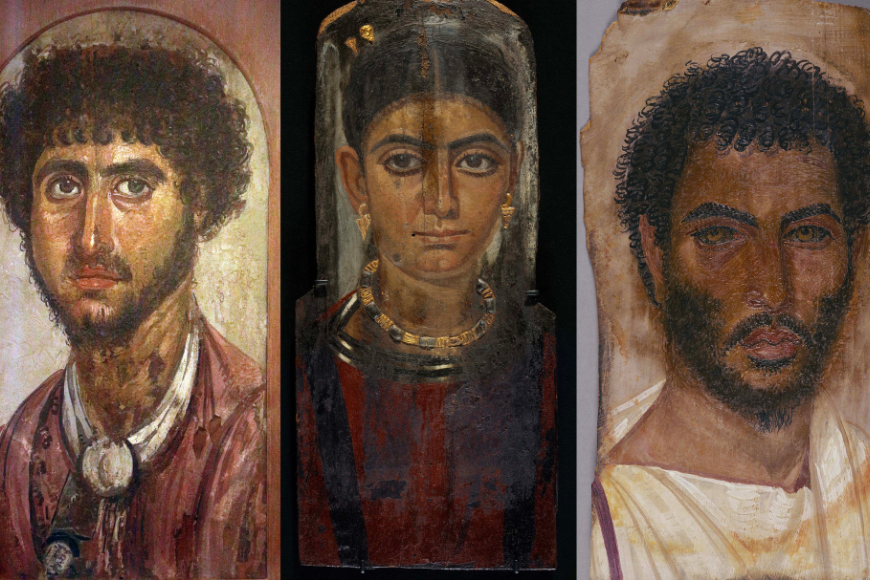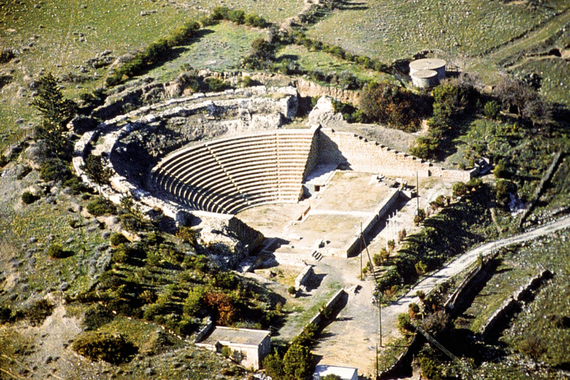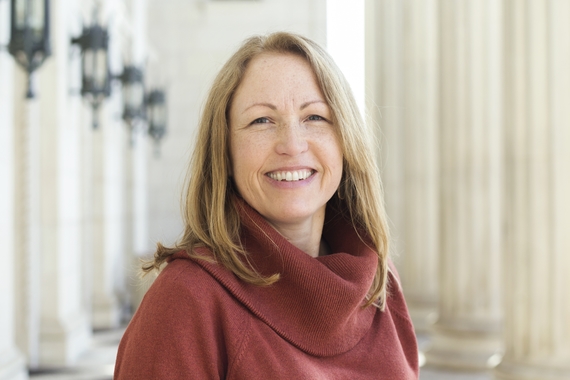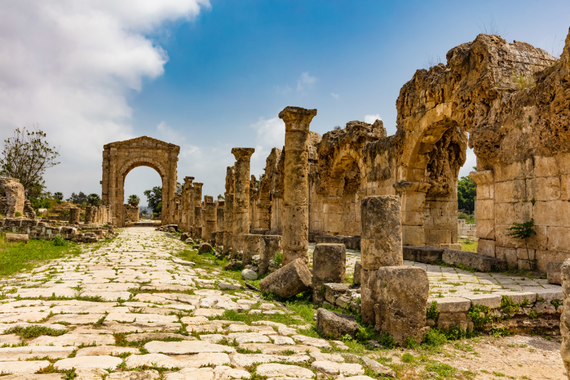The Future of the Past: Welcoming Change in Antiquity Studies
“Raising awareness is one thing. But raising awareness only goes so far,” says Steve Ahearne-Kroll, “you really have to take the next step, and say, ‘This is what we want to do now.'”
From spring 2022 through spring 2023, the Department of Classical & Near Eastern Religions & Cultures (CNRC) is hosting an event series addressing legacies of injustice in the study of antiquity. “The Future of the Past” is a series of open, public discussions simulcast on Zoom featuring scholars from all over the world. Ahearne-Kroll and his team lead the conversation on how the study of antiquity has favored certain perspectives in the past. With the future before them, the department is full of potential to change.
Reinventing Ourselves
Ahearne-Kroll, chair of the CNRC department, and his colleagues asked one question at the beginning of the 2021–22 academic year: “how has the study of antiquity worked in such a way to instill systematic injustice, consciously or unconsciously?” These studies have been dominated by white, male perspectives. Marginalized groups were often excluded, their voices unheard.
“We wanted to take a hard look at ourselves,” he says, “and ask ‘how have we conducted ourselves, not just individually, but as a collective group?’”
The CNRC faculty and staff, most especially Emily Heilman, the department’s project specialist, came together to develop this series. It was time to reach out to a variety of diverse perspectives. Speakers who deeply consider the injustices in the study of antiquity are helping the department think through the problems of sexism, racism, colonialism, power, and the like in their respective disciplines starting in Spring 2022.
“Most of the time, when you do public lectures, it’s for the general education of the department,” Ahearne-Kroll reflects. “But we really wanted these sessions to help us reinvent ourselves.”
Inviting Fresh Perspectives
The right change happens when the worst is revealed. With these sessions, the true purpose is not only to educate, but to reevaluate. The building blocks of many classical disciplines are made of practices and biases that can harm marginalized groups and promote untrue stereotypes. Ahearne-Kroll and the CNRC Department want to change that for the future. Starting March 24th, they will hold an intradepartmental conference to begin enacting the insights from The Future of the Past.
“We’re questioning the norm that only emphasizes these [historic texts and studies] from a European perspective,” Ahearne-Kroll says. “We’re questioning all that and trying to break down those barriers.”
Each session covered a different topic, allowing the series to cover a variety of disciplines. One session dived deep into biblical studies. Guest speakers like Susannah Heschel, a professor from Dartmouth College, talked about the idea of decentering whiteness from the study of the Bible itself. Another session explored the history of papyrology and ancient texts, and how Eurocentric the field can be.
But many of the discussions, at their core, were about changing the disciplines from within. Ahearne-Kroll stresses the importance of these conversations, especially for younger scholars; “they’re the ones who have been coming into the field after years of barriers,” he explains. “[They] deserve to have their perspectives—that are not Western European—heard in class too.”
Only The Beginning
Reinventing, reimagining, and reshaping; The Future of the Past series will wrap up next month. Their last session will be on Comparative Ancient Religious Studies and will take place on March 3rd. It will be free and open to the public for anyone who wants to be involved, in-person or on Zoom.
“With this event, it’s not just ‘how can we revamp an old department,’” Ahearne-Kroll says. “It’s the beginning of a new one.”
Get Involved with The Future of the Past
- The session on Comparative Ancient Religious Studies will be on March 3rd, from 1:00 PM to 2:30 PM. Register now to join in on the discussion!
- To view past sessions, fill out this form and select what sessions you’d like to view. You can also check out the website for more details on the sessions and their content.



